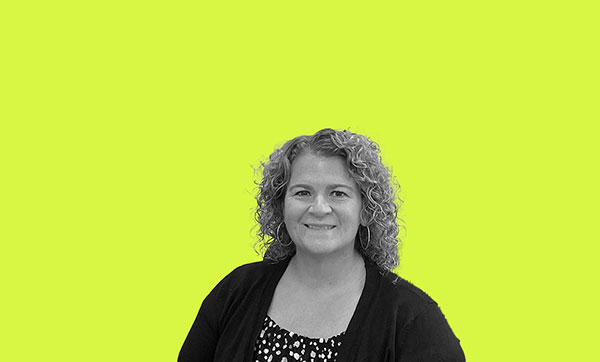From Routine to Unusual, Director Takes ‘Whole Health’ Approach to the Job.

Photo Provided
From Routine to Unusual, Director Takes ‘Whole Health’ Approach to the Job
Heidi Porter (SPH ’00) directs the health and human services department in Bedford, Mass. where the work ranges from routine to extraordinary, often on the same day.
When residents just aren’t sure who to call for help, it’s often the health department they reach out to.
“Everybody can relate something to their personal or physical health,” said Heidi Porter, Bedford’s director of health and human services.
Frequently, those requests are routine like how to find a vaccine, apply for a food permit, or what to do if the trash isn’t picked up. But sometimes they stray into more unusual territory – someone seeking help with a skunk at their house, or the call Porter received about a pig one weekend.
The pig was roaming the streets of Bedford, she said. Calling the health director did make sense, after all her department issues animal permits. But what to do about a 400-pound pig out for a stroll wasn’t something Porter (SPH ’00) learned while pursuing her master of public health degree. The pig did make it back home thanks to the help of animal specialists, and enjoys his annual health department inspection visits where Porter scratches him with a rake and feeds him sweet potatoes.
Collaboration
Porter was an environmental consultant in the private sector before her first public health job. When she joined Bedford as director in 2011, she led only health department staff. Because of natural collaboration already occurring, town officials subsequently realized it made sense to integrate the council on aging, youth and family services, veterans’ services, food bank, and mental health counseling into a health and human services department led by Porter.
“It’s been a really awesome opportunity to bring the idea of whole health and wellness together and to see how that really impacts the person and a community,” Porter said, going on to describe a pandemic response she’s proud of. She expanded the former food pantry services for Bedford residents so that staff is able to reach clients with additional health education and public health services through the town run food bank.
Looking ahead
State grant funding has allowed groups of health departments throughout the commonwealth to add shared regional staff to increase capacity. Bedford and neighboring towns are adding a regional public health nurse, a regional inspector, and a regional epidemiologist, increasing capacity for towns who need those services. For the moment, Porter says, her department is adequately funded and looking forward to returning to some routine programming this fall, as the demands of COVID-19 fade.
Most of her staff has been with her for at least six years, and she attributes the team’s surviving the pandemic to caring relationship that existed pre-pandemic.
“We recognize we went through this traumatic experience together,” said Porter, who starts most days checking in with her staff and reviewing what’s expected for the day. “We were able to work through it together and we recognize that it was pretty bad, but thank goodness we had someone else to be there with us to support us.”
“I feel for those small towns that don’t have staff, that don’t have public health colleagues or even a collaborative, if they were new to public health they didn’t have the opportunity to establish those relationships [during COVID].”
And what was traumatic during the pandemic, Porter said, were public expectations, and folks wanting answers they didn’t have. Having to tell residents to wait for testing or to wait for a vaccine. That they needed to make use of the available mitigation strategies including masking up and maintaining distance.
“That was really one of the hardest parts of it,” Porter said. “How to explain to the public how to feel safe without having the full toolbox of tools.”
Mentoring
Porter, who occasionally hosts public health students for internships, including BUSPH practicum students, said the time she spends mentoring future public health professionals is well spent.
“I feel we have so much to offer. We have so many different interesting programs,” she said. “And we are very open to their ideas as well.”
Porter described a recent tick-borne disease prevention project by a Temple University student and Bedford resident who created a tick heat map.
“Residents can identify in real time, or go back at a later time, and identify on a map of Bedford where they feel they got their tick to help us identify areas in town where there are more ticks, Porter said, adding that the department now knows where to focus mitigation strategies.
A student also worked on a list of places where residents could find swim lessons as a drowning prevention outreach measure, Porter said. And BUSPH epidemiology student Laura Nash (SPH ’22) during the pandemic did a preliminary evaluation of the town’s mask mandate. This work has led to a project the department’s new regional epidemiologist will work on.
“We’re so excited for her to do an after action on the efficacy of mitigation strategies based on this abundance of collected data,” Porter said. “It will help inform us… whether we’re having to contend with another Covid uptick or something else.”